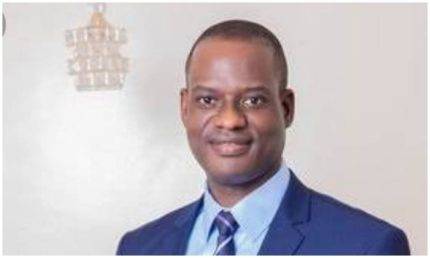Taiwo Oyedele, the Chairman of the Presidential Committee on Fiscal Policy and Tax Reforms (PCFPTR), has urged Nigerians to stop using the phrase, “May Nigeria never happen to you,” which he believes perpetuates a negative narrative about the country. Speaking at a recent event, Taiwo Oyedele emphasized the power of positive outlooks, arguing that such statements not only damage the nation’s image but also hinder collective efforts to build a better Nigeria. He stated that the problem lies not in Nigeria itself but in its governance, calling for a shift in perspective and attitude among citizens.
Drawing a comparison to the United States, Taiwo Oyedele noted that despite persistent challenges such as gun violence, Americans rarely express disdain for their country in the same way. Instead, they remain committed to improving their nation. He urged Nigerians to adopt a similar mindset and replace the phrase with something more optimistic, like “May Nigeria work for me.” This, he believes, can inspire hope, unity, and a collective drive for progress, aligning with ongoing reforms aimed at improving the country’s socio-economic conditions.
Fuel Subsidy Removal: A Turning Point in Nigeria’s Economic Reform
Taiwo Oyedele, Chairman of the Presidential Committee on Fiscal Policy and Tax Reforms (PCFPTR), described the removal of fuel subsidies as a game-changing decision for Nigeria’s economic future. He noted that these subsidies had created a deceptive sense of economic stability, masking deeper financial challenges. “Two years ago, the naira’s exchange rate was around N450, and petrol prices were under N200 per litre. But were these figures realistic? We were living in a window-dressed reality,” Oyedele remarked. By eliminating the subsidies, the government aims to correct systemic inefficiencies and focus on building a more sustainable economy.
According to Taiwo Oyedele, the subsidy system drained national resources and perpetuated unsustainable fiscal practices. He emphasized that the funds previously allocated to subsidies could now be redirected to critical sectors such as infrastructure, healthcare, and education. This policy shift, while initially challenging for Nigerians, is designed to lay a solid foundation for long-term economic growth and financial stability. Taiwo Oyedele believes this reform represents a necessary step toward addressing Nigeria’s fiscal vulnerabilities and unlocking its full potential.
Debt Servicing vs. Economic Growth
The chairman painted a stark picture of Nigeria’s fiscal challenges, revealing that nearly all government revenues were previously channeled toward debt servicing. This left little room for essential expenditures like public salaries and security initiatives, which had to be financed through borrowing.
“Everything we did, from paying salaries to combating Boko Haram, relied on borrowed funds,” Taiwo Oyedele said. He added that the previous administration’s financial policies placed Nigeria in a precarious position, but recent reforms aim to reverse the trend.
Lessons from Global Economic Crises
Citing international examples, Taiwo Oyedele reminded Nigerians of countries like Sri Lanka, where economic instability led to severe shortages of essential commodities. “There were times when citizens couldn’t even drive their cars every day because there was no fuel,” he noted, emphasizing that Nigeria’s situation, while challenging, is not unique.
These examples served to underscore the importance of reforms and the necessity of enduring short-term discomfort for long-term stability.
Inflation and the Hidden Costs of Printing Money
Taiwo Oyedele also shed light on the link between unchecked monetary policies and inflation. He revealed that Nigeria printed nearly N40 trillion in recent years, which contributed significantly to the current economic crisis.
“Nigerians often overlook how the invisible controls the visible,” he remarked. While the benefits of subsidy removal might not yet be tangible, he assured citizens that these measures lay the groundwork for a more stable future.
A Call to Action for National Reorientation
Concluding his remarks, Taiwo Oyedele reiterated the need for Nigerians to adopt a positive mindset toward their country. “Words have power,” he said. “If we keep saying, ‘May Nigeria never happen to you,’ we reinforce a negative narrative. Instead, let’s declare, ‘May Nigeria work for me.’”
The chairman’s appeal aligns with ongoing government reforms aimed at reshaping the nation’s fiscal policies, creating opportunities for growth, and inspiring citizens to believe in Nigeria’s potential once more.
Table of Contents
Discover more from OGM News NG
Subscribe to get the latest posts sent to your email.














